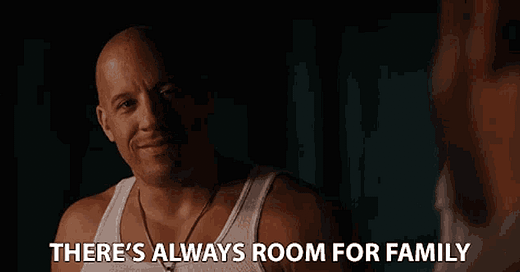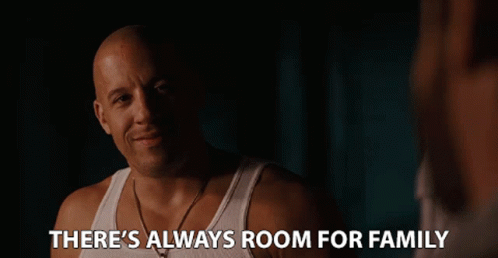Family traditions run deep, but sometimes God has different plans. Genesis 48 delivers one of Scripture's most powerful visual symbols when elderly Jacob intentionally crosses his hands to bless Joseph's sons, deliberately giving the younger son preeminence over the firstborn. Joseph tries to correct what he perceives as a mistake, but Jacob insists: "I know, my son, I know."
With this simple gesture, Jacob overturns cultural expectations, perpetuates his own story (as the younger son who received blessing), and prophetically rearranges the future tribal landscape of Israel. This isn't just an ancient blessing ceremony—it's a divine disruption of human expectation that reminds us God's kingdom operates with different priorities than our established systems.
The Choreography of Adoption and Blessing
Genesis 48 moves with the solemn weight of legacy transfer. "Jacob was told, 'Your son Joseph has come to you.'" This simple announcement sets the stage for everything that follows. The pattern is revealing:
Remaining strength gathered → Past faithfulness recalled → Future rights established → Deliberate blessing given → Divine reversal enacted
This isn't just narrative development – it's exposing something profound about spiritual inheritance. God's purposes often flow against the current of human expectation. Each scene builds upon the previous one, creating an intricate picture of how divine blessing transcends and transforms cultural conventions.
Breaking Down the Chapter
Verses 1-2: Jacob rallies his strength for a final significant act
Verses 3-7: Jacob recounts God's promises and adopts Joseph's sons
Verses 8-12: Joseph positions his sons for traditional blessing
Verses 13-16: Jacob crosses his hands, disrupting the expected order
Verses 17-22: Joseph objects but Jacob insists on the divine reversal
But here's what's fascinating – notice the multiple layers of inheritance? The chapter begins with Jacob claiming God's promises and ends with him distributing those promises unexpectedly.
It moves from recollection to projection, from adoption to blessing, from the expected to the surprising. Throughout, Jacob demonstrates that spiritual inheritance flows according to divine purpose rather than human precedent.
The Human Element: Jacob's Deliberate Disruption
When Jacob crosses his hands to place his right hand on Ephraim's head (the younger) and his left on Manasseh's (the elder), we witness one of Scripture's most profound symbolic actions. "But Israel reached out his right hand and put it on Ephraim's head, though he was the younger, and crossing his arms, he put his left hand on Manasseh's head, even though Manasseh was the firstborn" (Genesis 48:14).
This is revolutionary. The same man who had once deceived his father for blessing now deliberately blesses against cultural expectation—but with full sight and intention. Jacob has evolved from scheming for blessing to stewarding blessing according to divine insight. His crossed hands become a powerful visual symbol of how God's kingdom often operates contrary to human systems of privilege and precedence.
Christ as our Primogenitor
Genesis 48 reveals Christ as our divine Primogenitor—the firstborn who transforms the very concept of inheritance. Jacob's crossed hands and deliberate elevation of the younger son over the elder foreshadows how Christ would establish a new order of inheritance based not on natural birth but on spiritual rebirth.
The parallels run deeper than mere reversal of order. Jacob begins by recounting God's blessing at Luz (Bethel) before administering blessing himself—just as all blessing flows from Christ's authority. Jacob adopts Joseph's foreign-born sons into the covenant family—just as Christ adopts believers from all nations into God's family.
Most significantly, Jacob's declaration that Ephraim would become "a group of nations" while still making him part of Israel's tribal structure foreshadows how Christ creates a multinational covenant community that remains connected to its Jewish roots. The crossed hands that scandalized Joseph become a beautiful picture of how Christ's cross would scandalize human wisdom while establishing God's perfect plan.
When Jesus declared, "many who are first will be last, and many who are last will be first" (Matthew 19:30), He echoed the same divine principle Jacob enacted with his crossed hands. In Christ's kingdom, as in Jacob's blessing, divine priorities consistently disrupt human hierarchies, reversing what we consider natural order.
WALK THRU TRIVIA CHALLENGE
Question: In Genesis 48, Jacob gives Joseph a special inheritance that he had taken "from the hand of the Amorites with my sword and my bow." What was this special possession?
A) The cave of Machpelah where Abraham and Sarah were buried
B) A ridge of land (or portion of land) near Shechem
C) The altar he had built at Bethel after wrestling with God
D) The wells that his father Isaac had dug in the region
Check your answer below!
Answer: B) A ridge of land (or portion of land) near Shechem
Genesis 48:22 says, "And to you I give one more ridge of land than to your brothers, the ridge I took from the Amorites with my sword and my bow." The Hebrew word "Shechem" can mean both the place name and "portion" or "shoulder/ridge of land."
THE SIGNIFICANCE OF ADOPTION
Before Jacob even begins the blessing, he makes a remarkable statement: "Now then, your two sons born to you in Egypt...are mine; Ephraim and Manasseh will be mine, just as Reuben and Simeon are mine" (v.5).
This adoption declaration isn't just a sentimental gesture—it's a consequential legal action with far-reaching implications. By adopting Joseph's sons as his own direct sons (rather than grandsons), Jacob effectively:
Doubles Joseph's inheritance (each son gets a full tribal portion)
Ensures Joseph's Egyptian sons become full covenant participants
Transfers the rights of firstborn from Reuben (who had disqualified himself) to Joseph through his sons
This adoption narrative reveals a profound theological truth: inheritance in God's family has never been limited to biological descent. Long before Paul would write about the "spirit of adoption" in Romans 8, Jacob was modeling how family identity in God's covenant transcends blood relation.
Here's the transformative truth: The family of faith has always expanded through adoption, not just biological growth. Jacob didn't diminish his covenant family by incorporating foreign-born grandsons; he enriched it. This pattern—incorporating outsiders into the covenant family—runs throughout Scripture, culminating in Christ's expansion of God's family to include believers from every nation.
THE CROSSED HANDS THAT CHANGED HISTORY
Jacob's crossed hands weren't just a momentary family drama—they literally reshaped Israel's future. By elevating Ephraim over Manasseh, Jacob initiated a trajectory that would see Ephraim become:
The dominant tribe of the northern kingdom
So prominent that "Ephraim" often became shorthand for the entire northern nation
The tribal territory containing Shiloh, where the Tabernacle would rest for generations
When Joseph attempted to correct his father's crossed hands, thinking elderly Jacob couldn't see properly, he revealed a limiting assumption many of us make: that God's priorities must align with established human patterns. Jacob's response—"I know, my son, I know"—carries a weight of divine perspective that transcends human expectation.
This scene beautifully illustrates how God consistently works: He doesn't simply reverse human order for the sake of disruption, but He deliberately arranges blessing according to His sovereign purposes, often in ways that challenge our predetermined categories and expectations.
Your Turn to Walk Through
As you read Genesis 48 again (and I encourage you to do so), consider:
How does Jacob's deliberate blessing of the younger son challenge your assumptions about who qualifies for God's purposes?
Where do you see yourself in this story—attempting to maintain expected order like Joseph, or discerning divine priorities like Jacob?
What "crossed hands" moment might God be orchestrating in your life—a divine disruption of expectations that serves His greater purposes?
Remember, this isn't just an ancient blessing ceremony—it's a pattern of how God consistently works against human expectation to accomplish His redemptive purposes.
Join the Conversation
Genesis 48 reminds us that God's kingdom operates with different priorities than our established systems. Like Jacob crossing his hands against Joseph's expectations, God consistently rearranges what we consider the "natural order" of blessing and privilege.
Giving your life to Jesus means embracing this divine disruption of human hierarchies. It means recognizing, as Jacob did, that spiritual inheritance flows according to God's purposes rather than human precedent. It means being willing to have your expectations crossed—literally—as God reorganizes your understanding of who qualifies for blessing.
The question isn't whether God will challenge your preconceived notions of priority and precedence—He will. The question is whether you'll resist like Joseph initially did, or whether you'll embrace the divine reversal with the wisdom Jacob displayed when he declared, "I know, my son, I know."











